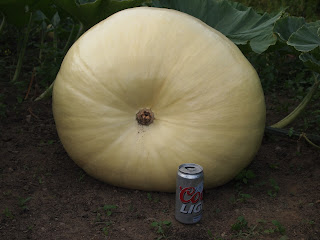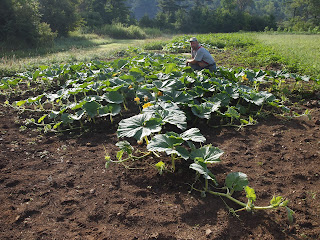Got Eggs? We do! We are looking for a few more egg customers. We have a new flock of chickens who's egg production is prolific! Eggs are self serve in our cooler for $3 a dozen or delivered in Goshen.
Did you know...???
Egg Buying Guide
When you go to the grocery store, you have all kinds of choices in eggs. Package labeling may indicate chickens are organic, antibiotic free, free range,
Did you know...???
Egg Buying Guide
When you go to the grocery store, you have all kinds of choices in eggs. Package labeling may indicate chickens are organic, antibiotic free, free range,
and omega-3 enhanced, among others. Let’s take a look at some of these marketing claims to see how it affects the final product.
Conventional Eggs
If you buy eggs at the supermarket without any marketing claims, in other words, the package is labeled jumbo eggs, you might be surprised to learn what that entails. Chicken farming is far from the pastoral image people have of chickens scratching around a barnyard happily before laying eggs. Instead, conventional eggs are raised in egg factories where the chicken are crowded together in multi-hen cages. These close quarters can be a breeding ground for disease, so farmers often fill the hens’ food with antibiotics to keep disease at bay, and those antibiotics can wind up in your eggs. Likewise, hens laying conventionally raised eggs may be given hormones to amp up production. These eggs tend to be lighter in color, less nutritious, and far less tastier than fresh eggs. By the time they get to the grocery store, the eggs may be quite old, as well. Along with containing hormones and antibiotics, conventional eggs may also contain strains of salmonella, which is a dangerous bacteria that can cause severe illness when ingested. Additionally, the hens in conventional factory farms are often fed genetically modified or pesticide laden feed, which can also show up in the eggs.
Cage-Free
Chickens in cage-free systems are still usually living in very crowded henhouses with thousands of other chickens. In fact, some of these houses are so crowded the hens do not have any room to move around. This means the hens are walking around in their own waste and waste from other hens, which is a breeding ground for bacteria. Thus, cage-free hens are often given antibiotics to prevent disease and hormones to increase yield. The cage-free hens (unless labeled organic) are also likely given GMO and pesticide laced feeds. Nutrition is similar to conventional eggs.
Free Range
This is a common claim you’ll find on egg cartons, and it draws to mind pastoral images of hens wandering around a farmyard in the sunshine, obtaining their foods naturally. In fact, many eggs labeled free-range are raised in a manner similar to cage-free animals, with the exception that they have a door or ramp to a small outside yard, which most hens never use. There is little difference between free-range eggs, cage-free eggs, and conventional eggs.
Organic Eggs
You’d think these would be the best of the best eggs, but they aren’t necessarily. Chickens laying organic eggs must be raised under organic laws, which include not feeding the chickens any food with pesticides, hormones or antibiotics. The chickens, however, do not have to be free range or even cage free. In fact, organic eggs from the grocery store are often raised in factory farm conditions with the same inherent crowding and bacteria problems as other eggs. Likewise, organic eggs may be several weeks old before they make it to the grocery store.
The Best Way to Buy Eggs
So how do you know you’re getting the best eggs? Get to know local farmers and buy your eggs from them. Many small, local farmers supply farm fresh eggs from chickens raised organically that are actually raised outdoors in un-crowded conditions. Likewise, small local farmers are more likely to allow their chickens to lay eggs naturally without hormone induction, as well as to feed naturally. If you buy your eggs from a local farmer, you may even be able to purchase them the same day the eggs are laid. Purchase some local eggs and you’ll immediately notice a difference. The yolks are a deep, sunny golden color with much better flavor and far more nutrition than conventional eggs. According to HealthFreedoms.org, pastured eggs have five times more vitamin D, 2/3 more vitamin A, two times more omega-3 fats, three times more vitamin E, and seven times more beta carotene. They are also less likely to contain harmful bacteria and be generally healthier than conventional eggs. If you’re unable to organically raise chickens in your own back yard (and many cities ban raising chickens), then find a farmer you can trust. Visit your local farmer’s market and ask the farmer about their egg production practices, or find local farmers at LocalHarvest.org, which helps you find farmer’s markets, CSAs, and local farmers in your area.
If you are going to eat eggs, it is certainly worth it to take that extra step!
Conventional Eggs
If you buy eggs at the supermarket without any marketing claims, in other words, the package is labeled jumbo eggs, you might be surprised to learn what that entails. Chicken farming is far from the pastoral image people have of chickens scratching around a barnyard happily before laying eggs. Instead, conventional eggs are raised in egg factories where the chicken are crowded together in multi-hen cages. These close quarters can be a breeding ground for disease, so farmers often fill the hens’ food with antibiotics to keep disease at bay, and those antibiotics can wind up in your eggs. Likewise, hens laying conventionally raised eggs may be given hormones to amp up production. These eggs tend to be lighter in color, less nutritious, and far less tastier than fresh eggs. By the time they get to the grocery store, the eggs may be quite old, as well. Along with containing hormones and antibiotics, conventional eggs may also contain strains of salmonella, which is a dangerous bacteria that can cause severe illness when ingested. Additionally, the hens in conventional factory farms are often fed genetically modified or pesticide laden feed, which can also show up in the eggs.
Cage-Free
Chickens in cage-free systems are still usually living in very crowded henhouses with thousands of other chickens. In fact, some of these houses are so crowded the hens do not have any room to move around. This means the hens are walking around in their own waste and waste from other hens, which is a breeding ground for bacteria. Thus, cage-free hens are often given antibiotics to prevent disease and hormones to increase yield. The cage-free hens (unless labeled organic) are also likely given GMO and pesticide laced feeds. Nutrition is similar to conventional eggs.
Free Range
This is a common claim you’ll find on egg cartons, and it draws to mind pastoral images of hens wandering around a farmyard in the sunshine, obtaining their foods naturally. In fact, many eggs labeled free-range are raised in a manner similar to cage-free animals, with the exception that they have a door or ramp to a small outside yard, which most hens never use. There is little difference between free-range eggs, cage-free eggs, and conventional eggs.
Organic Eggs
You’d think these would be the best of the best eggs, but they aren’t necessarily. Chickens laying organic eggs must be raised under organic laws, which include not feeding the chickens any food with pesticides, hormones or antibiotics. The chickens, however, do not have to be free range or even cage free. In fact, organic eggs from the grocery store are often raised in factory farm conditions with the same inherent crowding and bacteria problems as other eggs. Likewise, organic eggs may be several weeks old before they make it to the grocery store.
The Best Way to Buy Eggs
So how do you know you’re getting the best eggs? Get to know local farmers and buy your eggs from them. Many small, local farmers supply farm fresh eggs from chickens raised organically that are actually raised outdoors in un-crowded conditions. Likewise, small local farmers are more likely to allow their chickens to lay eggs naturally without hormone induction, as well as to feed naturally. If you buy your eggs from a local farmer, you may even be able to purchase them the same day the eggs are laid. Purchase some local eggs and you’ll immediately notice a difference. The yolks are a deep, sunny golden color with much better flavor and far more nutrition than conventional eggs. According to HealthFreedoms.org, pastured eggs have five times more vitamin D, 2/3 more vitamin A, two times more omega-3 fats, three times more vitamin E, and seven times more beta carotene. They are also less likely to contain harmful bacteria and be generally healthier than conventional eggs. If you’re unable to organically raise chickens in your own back yard (and many cities ban raising chickens), then find a farmer you can trust. Visit your local farmer’s market and ask the farmer about their egg production practices, or find local farmers at LocalHarvest.org, which helps you find farmer’s markets, CSAs, and local farmers in your area.
If you are going to eat eggs, it is certainly worth it to take that extra step!

















































